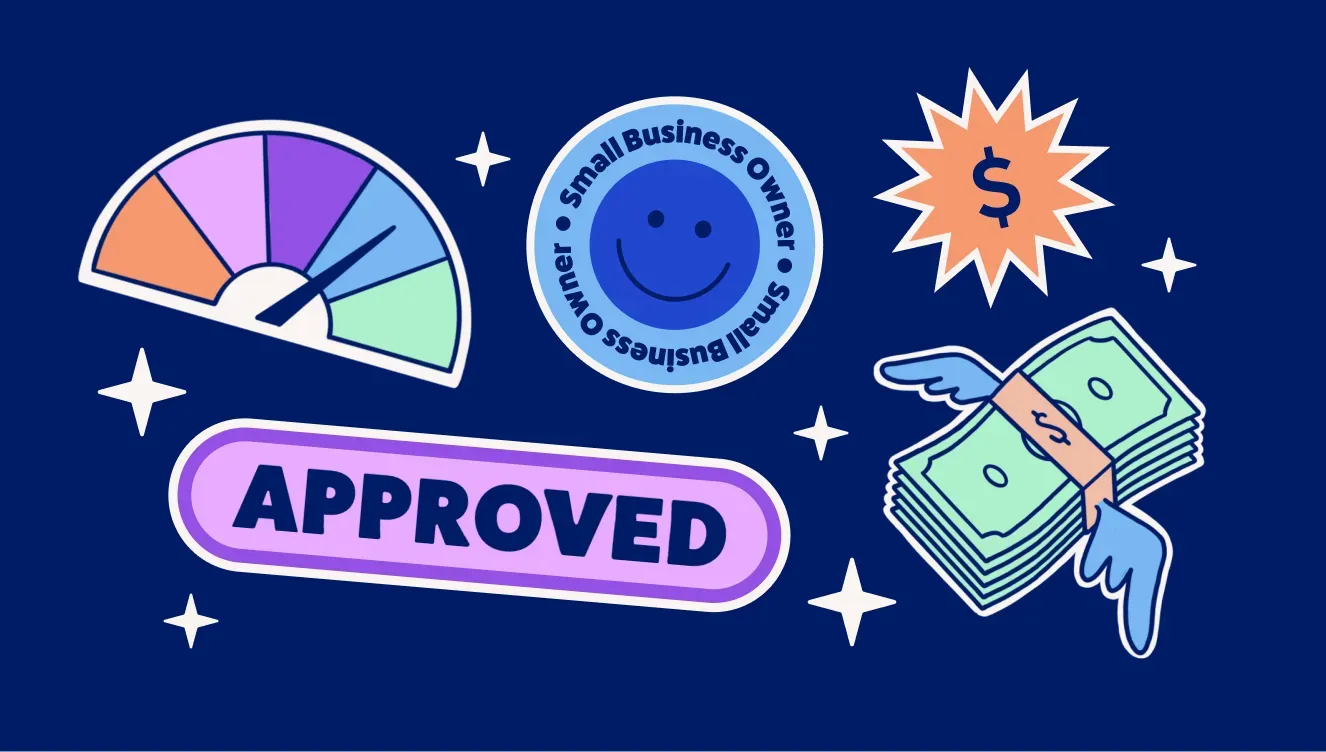If you want to start your own business in Nigeria and are eager to do so, you need to know the requirements for obtaining business loans in Nigeria. With this guide, you’ll be able to find your way around the key steps and criteria you need to meet to get money for your projects. Let me tell you about the requirements for obtaining business loans in Nigeria so you can take the next step towards becoming an entrepreneur.
Understand business loans:
In Nigeria, business owners who want to borrow money must fully understand the ins and outs of business loans. Business loans are meant to give you money for various things, like buying tools, starting a business, or expanding. Learning about the different kinds of loans, including interest rates, payback plans, and the various choices that banks and lenders offer, is essential.

By learning more about these basics, business owners can understand the requirements for obtaining business loans in Nigeria and make intelligent choices.
Conditions for getting a business loan:
Entrepreneurs in Nigeria who want to get business loans must understand the requirements for obtaining business loans in Nigeria. Before giving loans, lenders look at several things. Some of these are the borrower’s creditworthiness, the business’s financial security, the business plan’s viability, the borrower’s other debts, the availability of collateral, and the industry’s risk. By ensuring they meet these requirements, business owners can improve their chances of getting a loan and the money they need to grow and succeed.
Different kinds of Nigerian business loans:
When looking into requirements for obtaining business loans in Nigeria, it’s essential to know the different kinds that companies like you can get. Every business has different needs, so these loans have different terms and conditions. Here are some popular types:
- Term loans: These loans give you a lump sum of money and a set amount of time to pay them back with interest. They can be used to pay for long-term projects or purchase assets.
- Working capital loans: These loans are meant to cover day-to-day operational costs. They have flexible repayment terms and can help companies deal with changes in their cash flow.
- Asset-based loans: These loans have lower interest rates and higher borrowing limits because they are backed by the properties, goods, or equipment the business owns.
- Trade finance: Letters of credit and invoice financing are two types of trade finance facilities that help companies manage international trade transactions and lower the risks of importing and exporting goods.
- Microfinance loans: Microfinance institutions give small loans with few requirements so that many businesses can get them. They focus on small businesses and entrepreneurs in underserved areas.
Learning about these types of loans will help you choose the one that best fits the needs and goals of your business. Then, you can ensure that your loan application meets the standards for getting business loans in Nigeria.
Step by step on how to get a business loan
Here is a step-by-step way on how to get a business loan

- Determine what kind of money you need: Determine why and how much of a loan your business needs.
- Look into lenders: Look into Nigeria’s different banks and lenders that offer business loans.
- Ensure you meet the requirements: Look over the requirements different lenders in Nigeria set for getting business loans.
- Get the documents you need: Get the documents you need, like business plans, financial statements, IDs, and collateral papers.
- Send loan application: Fill out the loan application form and send it to the lender you chose, along with the necessary papers.
- Wait for approval: The lender will review your application and decide if you can get the loan.
- Talk about the terms: If the loan is accepted, discuss the terms and conditions, such as the interest rates, repayment terms, and collateral needs.
- Sign the agreement. Once the terms are agreed upon, sign the loan agreement and do anything else the lender asks of you.
- Get the money: Once everything is agreed upon, the provider sends the loan to your business account.
- Pay back the loan: Stick to the repayment plan and pay your bills on time to keep your credit score on track.
If you want to get a business loan in Nigeria, this step-by-step plan will help you do it while meeting the lenders’ requirements.
Everyday problems and mistakes
The steps needed to get a business loan can take time to understand. Knowing the most common problems and mistakes can help you get ready and improve your chances of succeeding. Here are some essential things to think about:
- Documentation that isn’t complete: One of the most common problems applicants have is that their paperwork is missing or incorrect. Ensure you have all the paperwork you need ready, like financial records, business plans, and proof of collateral. Having all the paperwork you need to apply for a business loan in Nigeria is very important.
- Bad debt history: Lenders will look at your credit past very carefully. You may have a much harder time getting a loan if you have bad credit or a past of late payments. Paying your bills and keeping your credit report clean will help you raise your credit score.
- Business plan needs to be better: A well-organized business plan is essential. Your business goals, strategies, market analysis, and financial forecasts should all be spelt out clearly in your plan. Lenders may only believe you can repay the loan with a strong business plan, making it hard to meet the requirements for getting business loans in Nigeria.
- Not having any proof: Many lenders need collateral to give you a loan. You might have difficulty getting a loan if you need more assets for protection. If this means that traditional loans aren’t a choice, look into other ways to get the money you need.
- High interest rates: Interest rates are high for small companies in Nigeria. When interest rates are high, it can be challenging for your business to pay back debts. Look at what different lenders offer and try to get the best terms to repay the loan quickly.
- Loan amounts that are too high: If you ask for a loan that is too big for your business’s current financial situation, lenders may not want to give you the money. Ensure that the loan amount you want is reasonable and practical for your business and finances.
- Not meeting the requirements to be eligible: Different lenders have different requirements that must be met to be eligible. You must meet these standards to get a business loan in Nigeria. You should know and meet all the requirements before applying.
- The approval process could be faster: It can take a while for business loans to be approved, which means the funds arrive later. To keep your business running smoothly, plan and ask for loans long before you need the money.
You can improve your chances of meeting the requirements for business loans in Nigeria by being aware of these typical problems and traps. This will help you prepare your loan application better. Preparing for this will help you get the money your business needs and make the process go more smoothly.
How to apply for a loan successfully
Getting a business loan can be very important for expanding your company. Knowing and meeting the standards for getting business loans in Nigeria is essential if you want your loan application approved. To help you get through it, here are some tips:

- Write an in-depth business plan: Your business plan is important to explain your company’s goals, strategies, and financial estimates. It should also be clear how the loan will help your business grow and how you intend to repay it. If you want a business loan in Nigeria, having a well-thought-out business plan can significantly improve your chances.
- Ensure your financial records are correct: Lenders will look closely at your financial records to see how stable and profitable your business is. Your balance sheets, income statements, and cash flow statements are correct and up to date. These records help show that you can handle and pay the loan.
- Improve your credit score: Your credit score is essential to getting a loan. A better credit score shows that you are responsible with your money and gives lenders more confidence. To raise your credit score before applying, pay off your bills, ensure you don’t miss payments, and fix any mistakes on your credit report.
- Get the paperwork you need: Before you start the application process, make sure you have all the papers you need. This includes the paperwork you used to register your business, tax returns, bank records, and any other paperwork the lender asks for. Having all the paperwork you need to apply for a business loan in Nigeria is essential.
- Look into and compare lenders: Each loan’s requirements, interest rates, and terms differ. Look into several banks and other financial institutions to find the one that best meets your needs. If you compare lenders, you can get better terms and ensure you meet the standards for getting a business loan in Nigeria.
- Know the rules and terms of the loan: Read and fully understand the loan’s terms and conditions, including the fees, interest rates, and when the payments are due. Ensure the terms are acceptable to you and that they fit with the financial resources of your business.
- If asked, give collateral: Many lenders want collateral to back up the loan. You should be ready to use land, equipment, or inventory as collateral. For Nigerian business loans, ensure the security value meets the lender’s needs.
- Get help from a professional: If you’re unsure about any part of the loan application process, you should talk to a business or financial expert. They can give you helpful information and make meeting Nigerian business loan standards easier.
- Learn how to communicate clearly: Talk to your lender transparently and honestly throughout the application process. Be ready to give more information or answer any questions that are asked. Getting along well with your lender can help your chances of getting approved.
- Check back on your application: After you’ve sent it in, follow up with the lender to see what’s happening. This shows that you’re serious and can help the process go faster.
Read Also. How to Improve Customer Service with Technology in Nigeria
Conclusion
Finally, Nigerian business owners who want to grow their businesses need to know the requirements for obtaining business loans in Nigeria. You can get the money your business needs to succeed if you meet the requirements, pick the correct type of loan, and follow the entire application process. You can also significantly improve your chances of success by learning about everyday problems and using helpful advice.
Take advantage of chances that could be very useful! Add your business to our online list right away. You’ll be able to access a lot of helpful information and get visibility for your business. Sign up right now to take the next step towards the future of your business.



